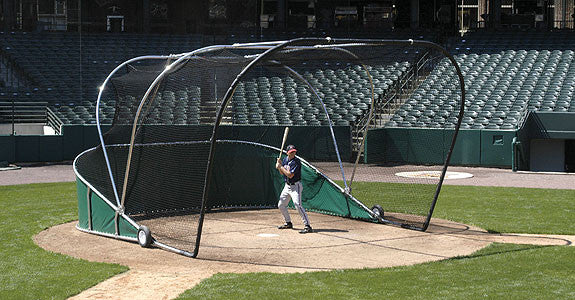Situation: Runner on first less than 2 outs. Hard grounder to the first baseman and he touches first throws to second. Can the runner choose to go back to first and try to make it back safely or must he go to second?
As soon as first base was tagged, the force is taken off the runner going to second. This means that there is no force at second base and he can return to first if he wants. This also means that the fielders will have to tag him out instead of just stepping on a base.
A ball is hit to the second baseman, he bobbles it, and the runner from first is running to second base and kicks the ball, what is the call?
There are two potential rulings on this play. The first one is that, assuming that the kicked ball was unintentional, the umpire will not call the runner out and play shall continue. However, if, in the umpire's mind, the kick was intentional, the ball is dead and the runner is out for interference.
There are several other scenarios also to consider, hits the runner before it get to the fielder. Ruling runner is out, ball is dead, and all runners return to the base they were on, batter is awarded 1st base.
Ball pass a fielder, other than the pitcher, how had a chance to field the ball and hits the runner. -- Ruling-- The ball hitting the runner is ignored and ball is live and played on as any batted ball would be.
I was watching major league baseball the other night in a situation occurred that I thought we discussed a little bit so that umpires wouldn't forget, and more important coaches could learn from it and use it to their advantage.
A foul ball is treated like any fly ball whether it's fair file with runners on base. Coaches tend to forget that they can tag up in advance on a catch from a foul ball. Every flyball whether fair or foul can be advanced on if the runner is tag up and touching the base when the player that's catching the ball touches the ball, side note here it does not have to catch only be touched, and then advances to the next base.
With that said runners and coaches shouldn't forget that when a foul balls caught a need to get back to their base, or the defense can touch the base first and the runner will be declared out on the appeal. I know nobody says anything in the everybody just does it and automatically the umpire calls out the runner if he's left the base to early is trying to return. But that really is an appeal play.
Remember you can advance on a foul ball that's caught or you can be put out a foul ball that caught just something to keep in mind.
Just saw this on TV this past weekend in a professional game, on the MLB channel. And thought it was worth a quick discussion to try and clarify again.
Situation was a runner at first base with one out. A line drive was hit to the second baseman who caught it for the second out. He then tried to throw to the first baseman to double off the runner but he hit the runner in the head which caused the baseball to bounce into the dugout. The umpires awarded the runner third-base, then you could see on TV the manager holding up two fingers and talking to his coach and saying is that right.
The answer is it was correct the rule states runners shall be awarded two bases from the base they last possessed at the time of the throw-- key issue here at the time of the throw not when it left the field--. This runner possessed first base, it makes no difference that he was going back to first, when the throw was made and then went out of play so he was awarded third. I would also interject here that if a pitcher throws the ball while touching the rubber, almost always during a pickoff attempt, then there is an exception it is only one base if a pitcher throws it out of play. However keep in mind if the pitcher steps back off the rubber he now becomes an infielder not a pitcher and you would award a runner two bases if the ball would go out of play.
I just thought it worth noting that even at the highest level of play coaches and players are not aware of the rules, I think one of the best things a coach can do is know the rules. You can argue all you want about balls and strikes, safe and out and you'll never get anything done but if you know the rules then you have a chance to make your point and get something accomplished positive to your ballclub.
Umpire Arnald Swift
Running Lane and Interference
The batter is out if, in running to first base, the batter-runner is hit by a throw while running outside of the 3 foot running lane, or interferes with the fielder taking the throw at first base. He could be called out even if he is not hit by the throw, if the umpire judges that by being outside the lane he interfered with the fielder’s attempt to field the throw. There must be a throw before interference can be called and the throw must be a quality throw. Rule 6.05(k).
A runner is not free from interference while in the lane, nor automatically guilty when out of the lane. If he is out of the lane he is in serious jeopardy of being called for interference, but it is not automatic, unless he is hit by the throw, or commits an intentional act of interference. The rule states that he is out when out of the lane AND causes interference with the fielder taking the throw. If he is out of the lane and is hit by the throw, that is always interference. If he is in the lane he could still cause interference, but it would have to be something obviously intentional (like grabbing the fielder's arm or glove, or deliberately touching a thrown ball). If the catcher does not make a throw because the runner is outside the lane, this is not interference. Interference with a thrown ball must be intentional. Such as, deliberately making contact with it. Or in this case if the runner is hit by the throw while outside the lane. The lines marking the lane are part of that "lane," but the runner must have both feet within the lane or on the lines marking the lane, to be judged as "in" the lane. Rule 7.09(k) casebook, N.A.P.B.L 4.14.
If the runner is hit by the throw or a collision occurs on his last step before touching the base; generally interference is not called. The runner has to step into fair territory to touch the base that is in fair territory.
-
You must tag the base with your foot on a force out or appeal.
You may tag the base with any part of the body or glove as long as you have firm and secure possession of the baseball in your hand or glove/mitt.
-
The ball is always immediately dead on a balk.
You are correct in high school baseball but in NCAA and professional rules, the ball is dead sometimes immediately but when the balk is followed immediately by a pitch, the ball is delayed dead and we wait until the end of the play and then either enforce the balk or allow the play to stand. If all base runners, including the batter-runner advance one base or more after the balk, the play stands. The coach or manager does not have an option on this rule.
-
If a player's feet are in fair territory when the ball is touched, it is a fair ball.
It is the location of the baseball when it is touched or touches the ground that determines it being fair or foul and not the position of the fielder’s feet.
-
The ball must always be returned to the pitcher before an appeal can be made.
If the ball is live, you may go directly to the missed base or the runner and tag him for missing the base or leaving it too soon on a fly ball that is caught.
-
With no runners on base, it is a ball if the pitcher starts his windup and then stops.
For a balk to be awarded, there needs to be runners because the penalty is 1 base awarded.
- The pitcher must come to a set position before a pick-off throw.
The pitcher need only come to a complete and discernible stop prior to pitching the ball and not for a pick off attempt.
-
The pitcher must step off the rubber before a pick-off throw.
In fact, if he does step off first and the ball is thrown away into dead-ball territory, the award is 2 bases. From the rubber, it is only a 1 base award.
- If a fielder catches a fly ball and then falls over the fence it is a home run.
If the catch occurs before leaving the field of play it is a catch and not a home run.
-
The ball is dead anytime an umpire is hit by the ball.
This is only true on a batted ball that the ball is dead. On a thrown or pitched ball, it is unfortunate but the ball remains live.
-
The home plate umpire can overrule the other umps at anytime.
The home plate umpire has no more right to overrule his partner(s) than they have to overrule him. In certain situations the UIC may have to change a call because of more correct information but no umpire has the right to overrule another.
Is it legal for the first baseman to have his feet, one or both, in foul territory while holding a runner at first base? Kevin
====================================
Rule you must have eight players in fair territory- catcher is only one that can start in foul territory. The rule is really designed to keep a coach from placing a player behind the catcher during an intentional walk, or some other defensive scheme before a live pitch.
To answer your question directly if you have 1 foot in foul territory and be considered okay, but he may not have both feet in foul territory which by the way is very difficult to do but that would be illegal.
I can tell you right now it's an extraordinarily rare call on first baseman while he is holding a runner on base. As the proper position for a first baseman right or left-handed is to place his heel on the front inside corner so as to be able to receive the ball, swipe tag, and not have the runner interfere with his receiving the ball by getting in between him and the ball. If your first base with his standing in foul territory he's cheating himself.
Umpire Arnald Swift










